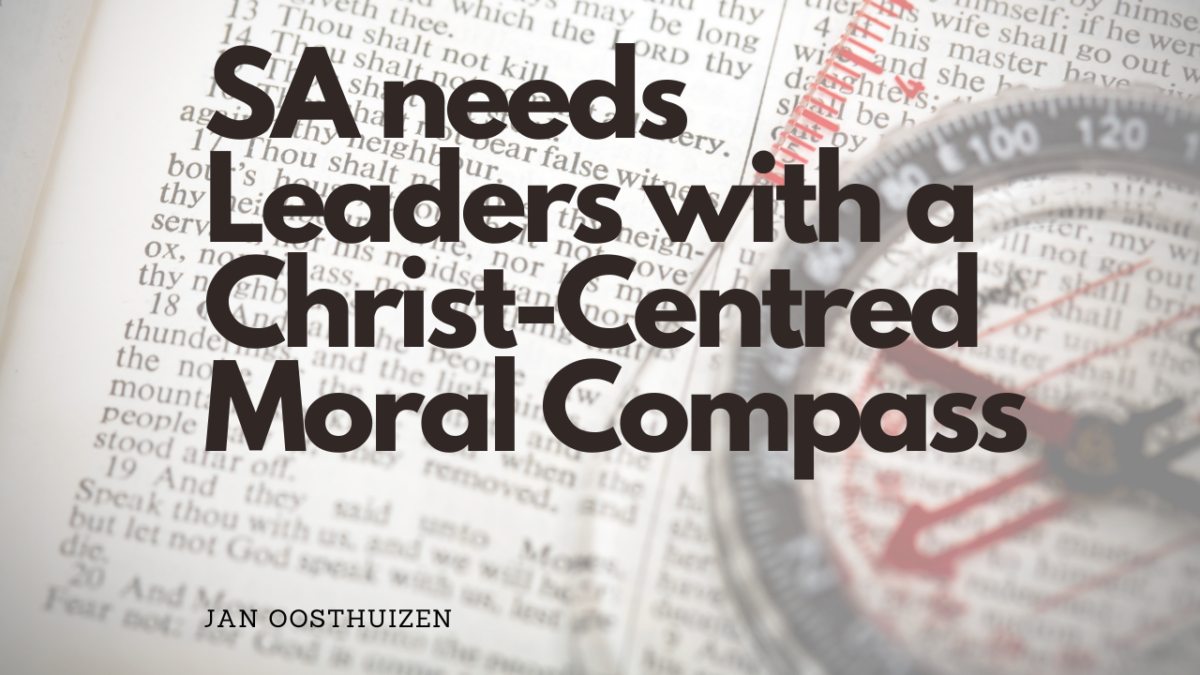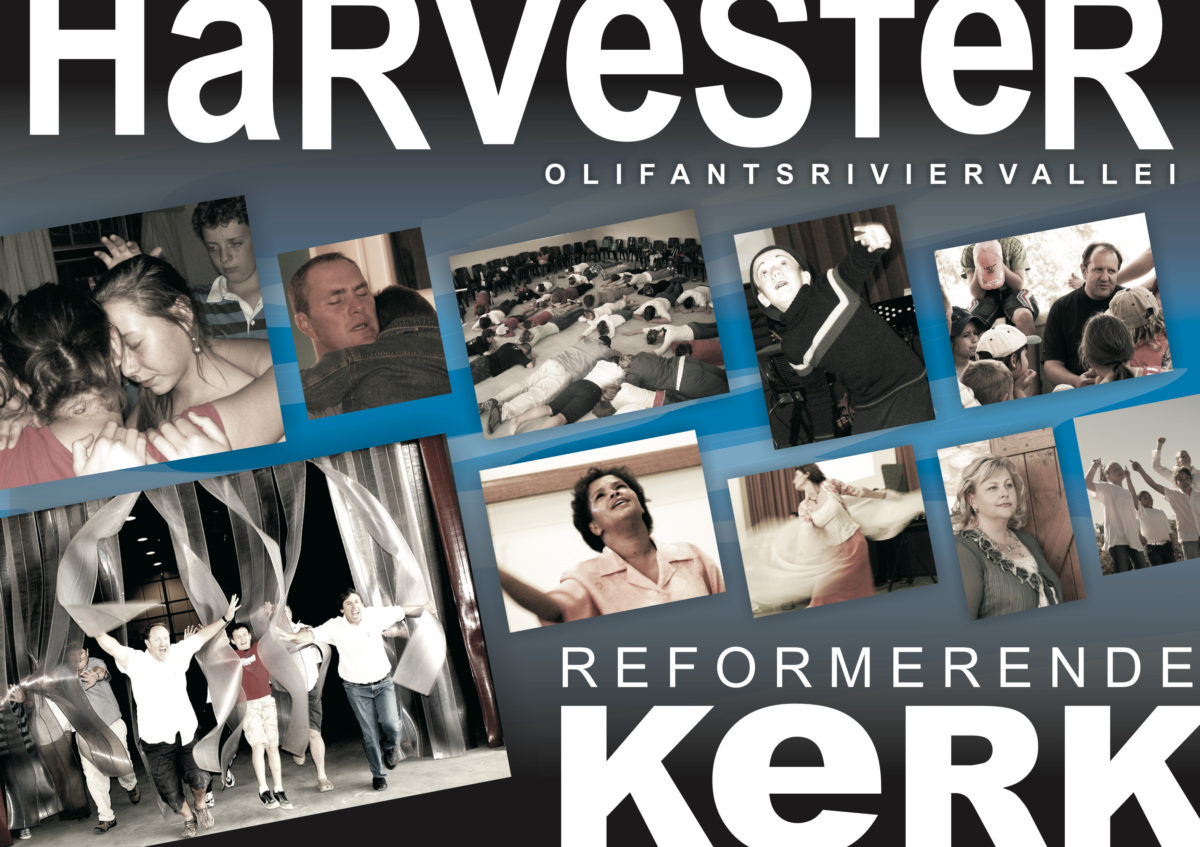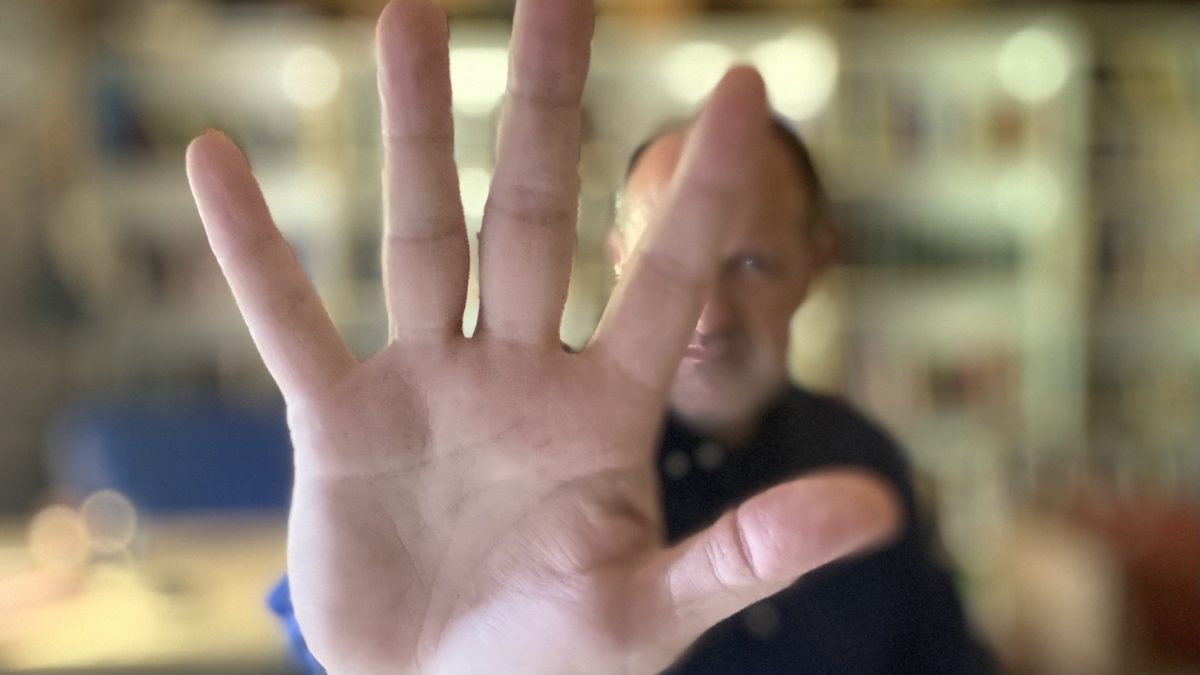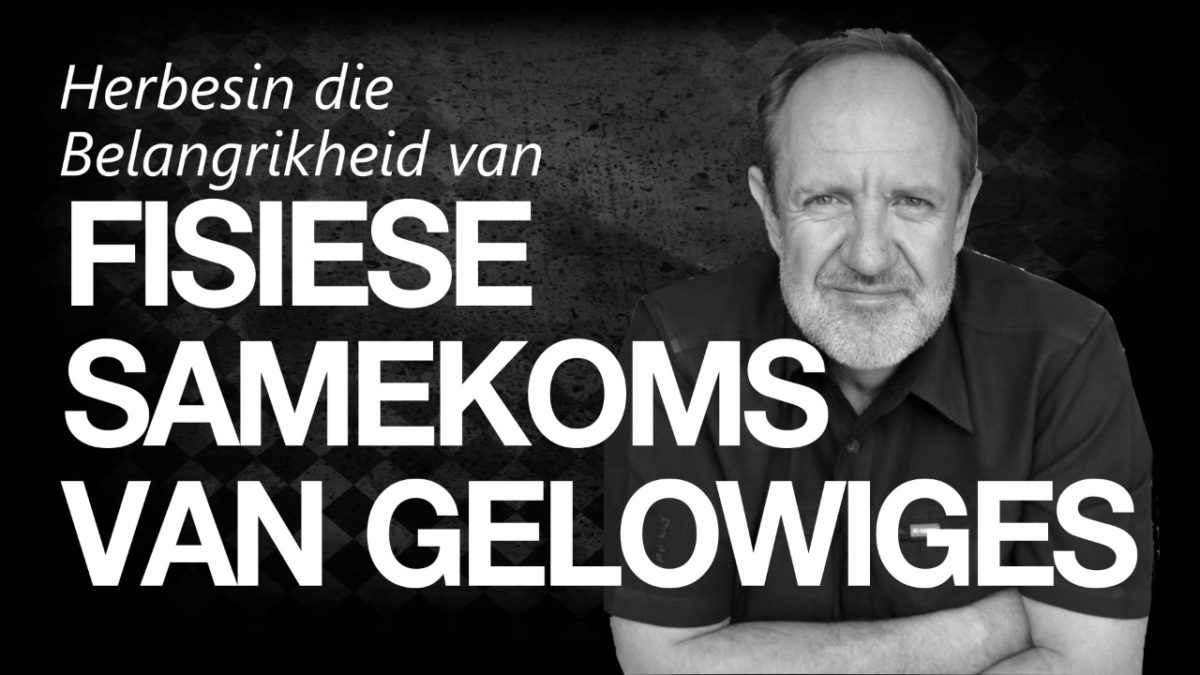The ultimate test of any religion, ideology or worldview is the benefits it ultimately brings to the poor, the marginalized and oppressed. If we say we are Christians, we have to take poverty seriously.
But if anyone has the world’s goods and sees his brother in need, yet closes his heart against him, how does God’s love abide in him? [1]
Although poverty in its many forms has been with us for ages, over-population and ensuing unemployment is becoming the prevalent crisis of the decade. The underlying question to more and more people, even those having a job is: How does one earn a living? Or bluntly said: “How does one make enough money?” Enough? What is enough? According to the bible enough are food, shelter and clothing? (Mat 6:25; 1 Tim 6:8) In a consumer-based driven economy, enough is never enough. Tech companies have found a way to make cell-phones, tv’s and computers consumables. With a rapidly growing and consistently younger population, the employment question is central to the enquiring mind. How will I ever make it, if my parents or no one I know isn’t even making it? Crime, theft, extortion, corruption, prostitution, sex-trafficking, gangsterism is for many the only sensible path to earn a living. The achievement of a superior qualification does not guarantee employment or better earnings anymore.
Dr. Ruben Richards, relates a moving story of while mediating peace talks in Lavender Hill notorious gang-war stricken area, he took a short break and saw a 9-year-old youngster patiently waiting for someone who was in the negotiating room. Making small talk Ruben asked the boy: “So, what do you want to be when you grow up one day,” Without blinking and with a sense of pride and confidence the 9-year-old said, “I want to be just like my daddy, a gangster!” That daddy happened to be one of the most notorious gang leaders in the room.[2] There are many people particularly children and women trapped in a destructive way of earning a living! Similarly, some businesses are keeping people poor, to ensure a constant workforce.
How NOT to earn a LIVING.
The bible is implicit regarding its warnings about how to not earn a living!
Purposeless Toil (Prov. 23:4); lies (Prov. 21:6); interest to family members (Exo 22:25; Deut. 23:19); dishonest gain (Eze 22:13); ponzi & pyramid marketing schemes[3]; fraud, over-promise-under-deliver; slavery & oppression of the poor (Prov. 22:16); unjust scales (Prov. 11:1); quick-profit (Prov. 13:11); default on payments (Ps 37:21; Rom 13:7); passive income (2 Thes. 3:10); extortion & bribes (Luk. 3:14); violence (Prov. 1:19).
Why do we have to pay taxes?
Generally: How do governments make money? Taxes, natural resources, tourism and investments? Oliver Wendell Holmes, former Justice of the United States Supreme Court, said, “Taxes are what we pay for a civilized society.” This phrase is engraved on the IRS headquarters building in the US. But like man, governments have also found unjust ways to abstract more money from its citizens, without delivering on it’s civil, safety, security, infrastructure promises.
When God saw that the wickedness of man was great in the earth, and that every intent of the thoughts of his heart was only evil continually. (Gen 6:5) He sends the flood as a punishment. Only one family was saved: Noah and his 3 sons. Thereafter God added another divine instruction to man: “Whoever sheds man’s blood, By man his blood shall be shed; For in the image of God He made man.” God was saying that He will never judge the earth again like this. Per definition, God gives this role now to human government. This is rearticulated again in the NT: Therefore submit yourselves to every ordinance of man for the Lord’s sake, whether to the king as supreme, 14 or to governors, as to those who are sent by him for the punishment of evildoers and for the praise of those who do good. (1 Pet 2:13-14) Even Jesus acknowledged the role of government: “Render therefore to Caesar the things that are Caesar’s, and to God the things that are God’s.” (Mat 22:21) That be it, an evil, godless, secular, government that later murdered Jesus, innocently, and persecuted Christians. But the Government’s role is clear: They are God’s agent on earth to punish, evildoers. People who selfishly has no regard for the safety, well-being and progress of the community.
Many governments are wedged into a destructive, systemic misappropriation of funds, and fail to fulfil their primary divine mandate. In the South African context Dr Nthabiseng Moleko summarises her experience in the Public Sector:
In my short life, I served in the public sector and I saw many things, but perhaps the most disheartening was the conduct of many of our leaders. I focus on the public sector, which does not hold the monopoly on corruption, deception, nepotism and the like, despite what our papers seem to want us to believe. I focus on them as they hold the key to changing the lives of the poorest of the poor, the oppressed, the most vulnerable in our society as they are mandated to. The private sector has a significant role to play in this regard, but it rapidly diminishes when one starts coining words such as “shareholder value” and “profit”. As I worked in the public sector, I began to see in different instances why the poor were not receiving the support they needed. It was because of people who either refused to do their work, those who wanted to block others from doing their work, or simply because those tasked with doing the work simply did not know how to do their work. Then of course there are those who make it their work to take and loot the money intended to actually do work targeted at the poor.[4]
Our president has been courageously fighting to keep our Country unified to over-come the COVID 19 pandemic, but if he is not going to punish corruption of funds intended for COVID 19 relief immediately, harshly, and decisively people are finally losing all trust in Government tipping the Country into self-regulated anarchy! Inefficiency, laziness, entitlement as a result of nepotism, carder-deployment and political social-tax robs from taxpayer’s money to feed their own greed has to be punished harshly because it is treason against humanity.
During the Mediation Foundation for Peace and Justice[5] conference at the Cape Castle for the restoration of land and the dignity of the people under the leadership of Alan Nelson the 18/8/2018 keynote speaker Chief Justice Mogoeng Mogoeng reminded participants that corruption is not only a government practise, the private sector has also been inundated by corruption scandals.[6] Corporate corruption, including deliberate bankruptcy, thin capitalization, illicit financial flows, transfer (mis)pricing, trade mispricing, jurisdiction shopping, and tax evasion.[7]
How do the righteous earn money?
Is what every believer should ask and fulfil in the fear of the Lord in their lifetime. According to Rabbi Daniel Lapin:
The business professional also must value his employees as well, for they are his most valuable asset. He must attend to their welfare. Recognizing them as spiritual beings with their own divine aspirations, he must not only endeavour to compensate them fairly but also help them find transcendent meaning in their work. Ancient Jewish wisdom prohibits an employer from instructing his worker to perform meaningless work. For example, he may not hire the worker to dig a hole one day, fill it the next, and thereafter repeatedly dig and refill it. This prohibition applies no matter how generous the pay maybe, because it leaves the worker with no sense of accomplishment, and therefore, no sense of the value of his contribution. [8]
Mankind had to work before work was cursed as punishment for their sin; subduing, tending, keeping and naming creation. (Gen 1:28; 2:15, 19) Work is thus supposed to be a blessing. Also, one is exhorted to find satisfaction in their own toil (Eccl 2:24; 3:13) raising up someone to steward it for the next generation to not see it going to waste. (Eccl 2:17-26) God is elated to see us prosper! “Let the LORD be magnified, Who has pleasure in the prosperity of His servant.” (Psalms 35:27) Righteous Work is the greatest remedy available for both mental and physical afflictions.” [9]
The role of agriculture.
God’s provision to man is on the earth. Food, clothing, housing is found in nature. Gardening, and agriculture is the first profession of mankind. (Gen 4)
From the Agricultural Thinktank perspective: How do farmers make money? They plant something of value, mitigate the VUKA[10] risks factors: climate change, soil degradation; droughts, diseases, labour, the threat of EWC and land invasions, making debt to produce enough healthy, desirable, nutritious food and sell it to the highest bidder. It is a huge accomplishment to get the product to the gate: but then the financially successful farmer has to battle sufficient off-take: On average, a farmer gets only 15% of the retail price from white bread, bulk wine farmer 7%, a citrus farmer 9%.[11] For the farmer to compete in the narrow shelf-space available in the retail-driven single-channel market system, he has to comply with strict food-safety, traceability, consistency, and scale requirements. Most do not comply hence the decline in single-owned farm units, and the rise of industrial farms.
Since 1996 the number of commercial farming units dropped from 60 900 to 39 900 in 2007. Of the current total, only 1.5 per cent (673) of commercial farms account for a third of total gross commercial farm income. In the food retail sector, the market share of the major retail chains has risen from below 10% in the late 1980s to around 68% in 2012. [12]
The Census of Commercial Agriculture report indicates that the total number of farms/ farming units in 2017 was 40 122. The total income for the commercial agriculture industry in 2017 was R332,8 billion, which was significantly higher than the R85,9 billion recorded for 2007. [13]
The conclusion is that bigger industrial commercial farms produced significantly more than small-scale and commercial farms with fewer people employed but generally paying better wages, and providing social-support infrastructure. According to Scott Drimie, director of the Southern Africa Food Lab and associate professor of Health Sciences at Stellenbosch, 100 commercial farmers produce about 90% of all of South Africa’s food.[14] The rest of the farming community are struggling and hence does not have enough funds left to do much social development. Agriculture is also the only sector that is required to provide housing, and social care to its workers, understandable the low wages paid. On the other hand, the employment offer is for the lowest expertise. The Developmental Bank of Southern Africa (DBSA) reveals that as little as 673 farms had a turnover of more than R10 million or an average of R17 850 283.[15]
The RICH and POOR Gap.
South Africa is burdened with a huge wealth-poverty gap. (Gini coefficient 2014-63.0)[16] The biggest portion of our population does not have access to the most basic services, water, sanitation, electricity, quality education and frightening complete social degradation. According to Stats SA, 2,193,96 South African households live in informal settlements – 13% of the country’s population.
Furthermore, the deepest disparity is the question of unequal wages and salaries. What are the Biblical justice and the ethically right way to think and act? Some suggest a national bench-marking salary standard, measured on several output measures.
But does higher wages necessary lead to bigger sharing and giving? In the African context, many workers annually deposit money into homeland accounts. The total volume of domestic remittances is estimated to be between $11 billion and $13 billion, equivalent to 4% of GDP. [17]
The white minority capital argument led to a juxtaposed form of racism criminalizing wealth and white-owned business enterprise. Pinning a collective sin to a singular culture-ethnic group is dangerous, as evidenced when the Soviet campaign of political repressions, including arrests, deportations, and executions of millions of kulaks (prosperous peasants) and their families in the 1929–1932 period.[18] Or the Hutu genocide of the Tutsi in Rwanda 1994. [19] How does one peacefully get the better earners to voluntary share their wealth?
Wages in the agricultural context is complex due to the huge number of low-qualified human hands needed in the fruit-picking sector. Currently, labour represents about 7.65% of total production cost on an average grain producing farm, compared to a 34% average on an apple and pear farm[20] The narrow profit margin of these industrial enterprises does not give much space to truly give a more equal wage, given the amount of skill and responsibility disparity between a general fruit picker and the CEO of a multi-national company? The inconsistency, unreliability, and problems associated with human labour has led to an overall automatization in the sector.[21] The question of labour in the agricultural sector is at the core of the negative sentiment against it. Agriculturalists are seen by many as the enslavers and abusers of the poor. Agriculturists may however become the national hero’s as several analysts have noted the potential of agriculture to generate one million job opportunities focusing on winning industries, and available arable land.[22]
Sharing willingly or taken by force?
Until this happens, the labour question deepens in a totally unequal society with dual economies: Why do those who have not share with the have nots? According to the Department of Social Development, there are currently 220000 NGO’s and community-based organisations registered. These NGO’s rely on government but also private corporate CSI funding to survive. There is hence a lot of sharing already going on!
Sharing is also a highly personal activity, located towards one’s own family, or church. It is most likely that sharing has not been reaching the right people. At Pentecost sharing, and consequent fulfilment of Jubilee happened willingly, from the heart! Voluntary sharing is one of the first fruits of revival and participants of the Jesus movement. (Acts 2:44-45; 4:32)
But not all giving has helped the poor. Dambisa Moyo argues convincingly that foreign aid feeds corruption, debasing social and human capital. “Aid has been, and continues to be, an unmitigated political, economic, and humanitarian disaster for most parts of the developing world.” [23]
Sharing resources without someone taking responsibility, utilising the given resources to improve their income and earnings is water down the drain. The biblical way of eradicating poverty – is a matter of personal responsibility. The farmer leaves portions of his harvest, the poor pick it up themselves. Everyone must share, and everyone must work! (Lev 19:10; 23:22)
Economy of mutuality and inclusion
Over and above the economic reality of the cost of wages Henry Hazlitt reveals that economics and ethics are, in fact, intimately related. Both are concerned with human action, human conduct, human decision, human choice. There is hardly an ethical problem, in fact, without its economic aspect. Our daily ethical decisions are in the main economic decisions, and nearly all our daily economic decisions have, in turn, an ethical aspect.[24] Thus there is a need for a Biblical Consensus on the tenets of redemptive entrepreneurship. This is what “ethical trade[25]” and the “International Christian Chamber of commerce” institutions try to achieve, Christians who do ethical business. Moreover, Christians that see their occupations as a redemptive purpose!
Dale Partridge shows in his book, People Over Profit, that short-term profit gain, at the cost of the people, eventually lead to long-term decline. History has proven that all lasting commerce is born from a dedication to high character, high quality and high customer loyalty. [26] Roche & Mayer started a collaborative research program between Oxford University and Mars to study the current capitalist system of increasing worldwide inequality, presenting a new model of ‘economics of mutuality’.
Our view is that we may soon need a new, more mutually beneficial and more complete form of capitalism that holistically optimizes value for all three inputs—the people, the planet, the financial capital—to reform the current system of financial capitalism that may one day collapse.[27]
Helmut Gollwitzer a concerned pastor, theologian and thinker known as a democratic socialist debated that regardless of our Christian political biases; we need to strive toward a social togetherness – “perfect togetherness without any conflict.” [28] This local community togetherness and economic justice cannot be achieved politically, culturally, economically or legislatively! This task lays at the Church community’s feet. To disciple the “ethos” where we reside and beyond. (Mat 28:19)
Those who are in Christ Jesus already have the solution!
Building Bridges, Repairers of the breach!
God has already moved and provided a Kingdom-based Non-Babylonian Economic Re-Generative Strategy.
A bridge-building movement is emerging in SA, as a counter-measure against increasingly populist, racist, and dividing rhetoric from some political leaders and groups. The bridge builder initiatives were sparked informally and spontaneously on many fronts throughout the country. Like the Bela-Bela solution-based farmers conference held in Limpopo, 23-24 August 2018. 48 Speakers from various backgrounds, positions, and sectors came to showcase solutions and existing stories of hope in Agriculture. Since the Bela-Bela Land summit others were held at Komga Farmers Union, 29 October 2018, East London. A Christ-centred Land summit was held in Sandton, Gauteng, February 28-1 March 2019, with a follow up in Middelburg EC, 20-21 May 2019, and 24 October 2019 in Paarl. All these LandSummits were intended as Bridge-building initiatives to develop and restore trust by showcasing stories of hope!
The Christ-centred focus is not geared to enforce religious exclusivity, or proselytism. The values that Jesus Christ portrayed, and so many South Africans from all backgrounds and race worship and adhere to, is seen as ‘n unifier. Hence people abandoning their religious denominations and divisive doctrinal differences, to unify and rebuild the social fibre so critically needed for strong social cohesion is based on the person and example of Jesus Christ.
It was forthcoming, that many of the stories and models showcased at the Landbou Weekblad Bela Bela event, had a strong personal faith in the person of Jesus Christ as their source and motivation. The organizers of the two Christian Land Summits, thus viewed the shared Christ-centred values as a method to fast-track bridge-building of new cross-cultural relationships vital to the transformation of agriculture.[29] It should also be noted, that although these values were the backbone of all the dialogue during these summits, the focus was healthy ‘Christ-centred’ relationships and not formalized religion. The Jesus-narrative provides sufficient foundations and commonality to foster healthy relationships, and eventually sustainable projects. This is an important point to consider as many good projects failed due to corruption: the lack of intrinsic moral practically out-lived values.
The issue of “the right heart” is elucidated when people truly surrender their heart to Jesus. As Analize Crosby AGRISA policy analyst explains: “The personal cost of sharing is too high to enforce it by law or war, it has to come from the heart.”[30]
This question of trust and equality is disentangled within the Christ-centred narrative. Various autonomous role-players naturally gravitated towards one-another, without any traces of the obstacles and hindrances of prideful superiority. Former Zimbabwean Farmer Boet Pretorius , who was one of the first farmers to lose his farm in Zimbabwe; puts it succinctly: “until you love God first, then your people, you will not rule or keep your land”. This was also the conclusion of the first Land Summit:
Aid amplifies ‘god’ complexes and strengthens inferiority complexes. The question was asked: “Who are the poor?” The Christ-centred perspective is:
• Poor relationship with God – Poverty of Intimacy
• Poor relationship with myself – Poverty of Being
• Poor relationship with family – Poverty of Trust
• Poor relationship with community – Poverty of Security
• Poor relationship with Creation- Poverty of Stewardship
Thus, all mankind is considered poor, and in need of healthy relationships. From this point of view, a more natural and equal base is established to build relationships of trust.
TENET 1: CHRIST-CENTRED REVIVAL
Christocentric, spirit-filled believers already have a sense of ‘togetherness’ not achieved through any human effort. Currently, there is a movement growing all across the country as streams of biblical, kingdom-purposed-faith-based individuals, churches and NGO’s are seeking the lowest point of departure. True humble, meek, and ego-less spiritual fathers (Isa 33:21) are calling the church into action: to again become the most attractive religion that toppled the mighty roman empire to convert to the ideals and values of a revolutionary Jewish artisan from Galilea. Even the World Economic Forum calls for a new social covenant where trusted local father figures re-align local societies to an equitable, mutual-responsibility, human-dignity focused common good. [31]
- The Christian Church grew most rapidly in the 300 years. (Stark 1997:161–162; Hirsch, 2006:18-22; Viola & Barna 2008:246–250)
- The Christian Church became the State Religion because of its exemplary demonstration of intrinsic critical values: great acts of mercy and kindness • mutual support and love • self-control • respect for life • To do good to each other. • Avoid evil such as theft, deceit and jealousy. • Show hospitality to strangers. • Take care of each other and share their food with each other. • Prove mercy toward all people. • Conduct care and nursing of the sick. • Households testify to dignity, personal responsibility, honesty and obedience. • Ethnic variety is accepted. • Women, children and slaves are treated with respect. • Respect for life prevents abortion and childhood murder. • Martyrdom and the willingness to ‘ take up your cross ‘ (see Mark. 8) [32]
- Apostolic travelling teams mentored, taught, and held churches accountable to these values resulting in the writing of the NT.
- The member’s active involvement of doing the work of the ministry, filled with the Holy Spirit, modelled on the example of Jesus and the apostles created a missional culture of mature believers living the gospel. Their redemptive works were proof of their accuracy, not doctrinal documents.
TENET 2 Asset Based Community Development.
Various Christian entities have already been strategically moved into place to change the Social-profile source document. We cannot achieve solutions, and togetherness if we are not working from the same source documents. There is currently no consensus regarding the Government’s land audit, and the suggestion is to rather profile the community than the country. Prof. de Wet Schutte with the Unisearch Program uses diversified Focus group prioritizing of needs analyses.[33]Johan Olivier (Ranyaka) follows a more town-planning, architectural-infrastructure-mapping approach.[34] Asset-Based Community Development’s premise is that communities can drive the development process themselves by identifying and mobilizing existing, but often unrecognised assets.[35] Currently, Prof. Deon Pretorius has created an Online application to do a statsSA community Profile so that the correct figures can be given to all the Government Departments: Human Settlement, Education, health, rural development, Social Development, and Agriculture.
TENET 3 Morpho-genetic Social Developmental Approach.
The more we explore the significant challenges of our time, the more we are coming to realize that they cannot be understood as being isolated from each other. There is no single solution to the complexity of the challenges we face. [36]
From a Biblical Community Developmental perspective of how God made a nation of a bunch of slaves, it is understood that God’s way of restoration begins with a father, in a specific location, who through his obedience creates a new family, extended family, culture and nation. This approach provides an explanation and strategy for development based on the complex interplay between contexts and people acting in contexts. Each community basically takes ownership of their own challenges through a Christ-centered-value-driven, non-partisan, pluralistic, multisector, pragmatic approach that begins to build local capacity, to achieve the common good of everyone in the community. In most instances a dramatic negative like the SundayRiverValley[37], Harrismith[38], and uprisings, gives way to a radical peaceful collaborative when the right people take lead.
TENET 4 Funding of God-inspired initiatives.
An army is as strong as it’s supply-chain. If we cannot get the resources to the troops on the front-line, we will lose the battle. A great protest was mounted by the people, including the wives, against their fellow Jews. Some said, “We have big families, and we need food just to survive.” Others said, “We’re having to mortgage our fields and vineyards and homes to get enough grain to keep from starving.” And others said, “We’re having to borrow money to pay the royal tax on our fields and vineyards. Look: We’re the same flesh and blood as our brothers here; our children are just as good as theirs. Yet here we are having to sell our children off as slaves—some of our daughters have already been sold—and we can’t do anything about it because our fields and vineyards are owned by somebody else.” [39] Nehemia could not finish the wall until economic restitution had taken place. Simply put: the funds are not getting to the right people! Through nepotism, carder-deployment, racial-preference, and BBEEE white farmers are seen as the enemy (privileged), while many of these farmers held the solution-key to mutual economic growth. By means of the AMOS[40] network of farmers who have already proven their Christ-centred heart and passion, who have already made enormous financial contributions to restoration and healing, there are already plans/businesses/projects that are waiting for FUNDING. Hennie Viljoen proposed an “everyone must give approach”[41] Mines, banks, supply and value-chain, government, and the farmers all give a portion towards an equitable, profitable, right-partnership farming enterprise. He who increases his wealth by interest and usury gathers it for him who is gracious to the poor. (Prov 28:8)
TENET 5 The Fruitful village.
How does a community/town/village/city look when God’s Kingdom has come? Although God’s Kingdom is in part an eternal future expectation, there is a part that needs to be established by His church here and now. (Luk 17:21; Mat 10:7) Eventually, all these father-family-faith-based projects begin to heal and restore communities by doing/executing/demonstrating Peace & Love solutions locally and hence gaining influence in Government, Health, Education, Law-enforcement and Business sectors.
The Kingdom expands through Christ gaining territory in hearts through deep discipleship-based relationships. Sin is the destruction and disruption of relationships: hate, offence, jealousy, pride, sloth, laziness, entitlement, deceit destroys relationships and family. God’s Kingdom is restored when relationships/community/family is restored.
The relational process takes time, it is a long-term generational process.
It is said that: “Throughout human history, most people live and die in the social class into which they were born. We cannot bring change to the individual if we do not affect the culture.” The best way to transform a culture is through raising healthy children, within a healthy extended family, the Church. “it takes a village to raise a child” or “it takes a church to raise a village”[42]
If we ever want to change communities, it begins at the ECD level. Early childhood is a period of tremendous growth. Extending from conception to the age of 6, early childhood experiences carve out pathways towards health and well-being that persist throughout life. Supporting early childhood development, especially for the most vulnerable children, requires coordinated action to ensure health care, adequate nutrition, quality education, support for parents and protection of children’s rights. But we need a new-employment-outcome-based kind of education. Children do not only need knowledge, but they also need skills, root skills in terms of character development, and technical production/entrepreneurial kind of skills that will give them a trade when they leave school not a certificate on paper.
May your kingdom come and will be done here on earth as it is in heaven!
[1] 1 John 3:17 ESV
[2] https://discoversociety.org/2020/08/05/on-the-frontline-blood-in-blood-out-can-art-change-gangsterism/
[3] https://www.crown.org/blog/are-multi-level-marketing-companies-a-good-idea-for-christians/
[4] Moleko, N., 2017. Been Chasing Destiny. 1st ed. South Africa: Ngezandla Publishing, p.562.
[5] http://peaceandjustice.co.za
[6] https://www.janenchantal.com/report-of-the-restoration-of-land-and-the-dignity-of-the-people-conference-in-the-cape-of-good-hope-castle/
[7] Bracking A qualitative reframing of private sector corruption Considerations from the natural resource sectors in South., 2020. Anti- Corruption Resource Centre U4, [online] August 2013 No 7(U4 Issue), p.2. Available at: <https://www.u4.no/publications/a-qualitative-reframing-of-private-sector-corruption-considerations-from-the-natural-resource-sectors-in-south-africa.pdf> [Accessed 13 August 2020].
[8] Lapin, R., 2014. Business Secrets From The Bible: Spiritual Success Strategies For Financial. 1st ed. New Jersey: John Wiley & Sons, p.33.
[9] The Forbes Scrapbook of Thoughts on the Business of Life, New York: Forbes Inc., 1968, p. 427.)
[10] https://en.wikipedia.org/wiki/Volatility,_uncertainty,_complexity_and_ambiguity
[11] http://www.grainsa.co.za/what-is-a-wheat-producer-s-percentage-share-of-retail-white-bread (retrieved August 2018)
[12] Bernstein, Henry. (2013). Commercial Agriculture in South Africa since 1994: ‘Natural, Simply Capitalism’. Journal of Agrarian Change. 13. 10.1111/joac.12011.
[13] http://www.statssa.gov.za/?p=13144
[14] http://www.702.co.za/articles/2138/how-south-africa-can-keep-on-producing-enough-food-for-everyone (Retrieved 31 December 2017)
[15] Statistics South Africa, 2005. Census of commercial agriculture, 2002. Pretoria, StatsSA.
[16] https://data.worldbank.org/indicator/SI.POV.GINI?locations=ZA
[17] https://www.technoserve.org/wp-content/uploads/2016/11/South-Africa-domestic-remittances-report.pdf
[18] https://en.wikipedia.org/wiki/Dekulakization
[19] Kinzer, S., 2010. A Thousand Hills. New York, NY: John Wiley & Sons.
[20] Saayman, Lehanri & Middelberg Sanlie. The Effect Of Higher Wages On Production Cost And Mechanization: A South African Maize Sector Study. The Journal of Applied Business Research – March/April 2014 Volume 30, Number 2 https://pdfs.semanticscholar.org/14e9/b6dc7d78af29c2340b041d01dba3ff2717f8.pdf
[21] Le roux, Daniel. Autmotion and employment: the case of South Africa. 2018. http://suinformatics.com/wp-content/uploads/2018/06/automation-employment-case-1.pdf
[22] Meyer, F., 2012. FARM SECTORAL DETERMINATION: AN ANALYSIS OF AGRICULTURAL WAGES IN SOUTH AFRICA. BFAP December 2012, [online] Available at: <https://www.hopcal.co.za/wp-content/uploads/2018/04/article_files_61_bfap-farm-sector-determination-report-draft-17-dec.pdf> [Accessed 13 August 2020].
[23] Moyo, D., 2014. Dead Aid. Haffmans & Tolkemitt.
[24] http://jpatton.bellevue.edu/biblical_economics/morality-economics.html
[25] https://www.ethicaltrade.org
[26] Partridge. Dale, People over Profit, Thomas Nelson, 2015
[27] Roche, B. and Jakub, J., 2017. Completing Capitalism. 1st ed. Oakland, CA 94612-1921: Berrett-Koehler Publishers, Inc.
[28] See Gollwitzer, Protestant Theology : 191 – 2. Gollwitzer draws very briefly here on the imagery found in Mi 4.3f, Zec 3.10, and Rom 14.17.
[29] https://landsummit.co.za/14-models-2019/
[30] https://landsummit.co.za/the-heart-of-the-law-and-the-law-of-the-heart/
[31] http://www3.weforum.org/docs/WEF_GAC_NewSocialCovenant_Report_2014.pdf
[32] Dreyer, W., 2011. Praktiese Ekklesiologie En Bedieningspraktyk Met Verwysing Na Die Nederduitsch Hervormde Kerk Van Afrika (Afrikaans).
[33] http://www.unisearch.co.za
[34] https://ranyaka.co.za
[35] https://www.nurturedevelopment.org/asset-based-community-development/
[36] Friesen J. Dwight. Thy Kingdom Connected (ēmersion: Emergent Village resources for communities of faith): What the Church Can Learn from Facebook, the Internet, and Other Networks”
[37] https://herald.pressreader.com/@Deon_Pretorius.2/csb_ik_tdjif_gzuXh-IDPUy-_sjz7BnQdPRXsLmbL9DXMD4a-I1o5UKqkbPAccX08wa
[38] https://www.goodthingsguy.com/people/sam-twala-fixing-problems
[39] Eugene H. Peterson, The Message: The Bible in Contemporary Language, (Colorado Springs, CO: NavPress, 2005), Ne 5:1–5.
[40] https://amosafrica.net
[41] https://landsummit.co.za/wp-content/uploads/2019/03/2019-February-28-Land-Summit-Everyone-must-give.docx.pdf
[42] Mitchell, M., 2001. It Takes A Church To Raise A Village. Shippensburg, PA: Treasure House.









